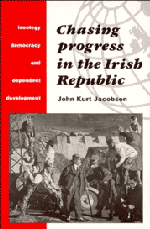Book contents
- Frontmatter
- Contents
- Acknowledgments
- Introduction
- 1 Reflex modernization: state, ideology and dependent development
- 2 Perils of planning: foreign capital, domestic policy, and the problem of state “strength”
- 3 The pale replica
- 4 The rising tide
- 5 Pushbuttons and pragmatists
- 6 Governability and corporatist compromise
- 7 Getting it right: debt, taxes, and industrial strategy, 1984–1990
- Afterword: 1991–1993
- Bibliography
- Index
2 - Perils of planning: foreign capital, domestic policy, and the problem of state “strength”
Published online by Cambridge University Press: 07 September 2010
- Frontmatter
- Contents
- Acknowledgments
- Introduction
- 1 Reflex modernization: state, ideology and dependent development
- 2 Perils of planning: foreign capital, domestic policy, and the problem of state “strength”
- 3 The pale replica
- 4 The rising tide
- 5 Pushbuttons and pragmatists
- 6 Governability and corporatist compromise
- 7 Getting it right: debt, taxes, and industrial strategy, 1984–1990
- Afterword: 1991–1993
- Bibliography
- Index
Summary
The large private corporation fits oddly into democratic theory and vision. Indeed, it does not fit.
Charles Lindblom, Politics and MarketsDuring a visit to Dublin in the late 1970s John Kenneth Galbraith paused in his analysis of the “two-tiered economic system” and critcisms of free market lore to reassure an audience of financial executives that “the multinational corporation is not multinationally wicked.” Asked to appraise the Irish industrialization strategy of export-led growth via injections of foreign direct investment, he replied soothingly that “the notion of outside control should not be too alarming. While multinationals are a menace to weakly governed countries, they present no threat to those strongly governed.”
Yet apprehensiveness was justifiable. In contrast to Galbraith's upbeat assessment, one could find at that time an Irish prime minister promoting his nation's industrial advantages in a Fortune magazine advertisement. “The main thing,” he emphatically explains, “is that we impose as few conditions as possible.” In this courteous and hospitable English-speaking milieu, prospective investors may rest assured that “policies never change” in the transition from one government to another and also that “Irish products are politically acceptable everywhere” in a fitting finish to an elegant plea.
In the wake of a recital of impeccable investment criteria, the managing director of the Industrial Development Authority in 1975 noted finally that “we have not experienced the luxury of turning away viable industrial projects because they could not use native raw materials or because their potential linkages were not fully to our liking … we cannot afford to shut out any source which is currently supplying viable industries.”
- Type
- Chapter
- Information
- Chasing Progress in the Irish RepublicIdeology, Democracy and Dependent Development, pp. 27 - 44Publisher: Cambridge University PressPrint publication year: 1994



